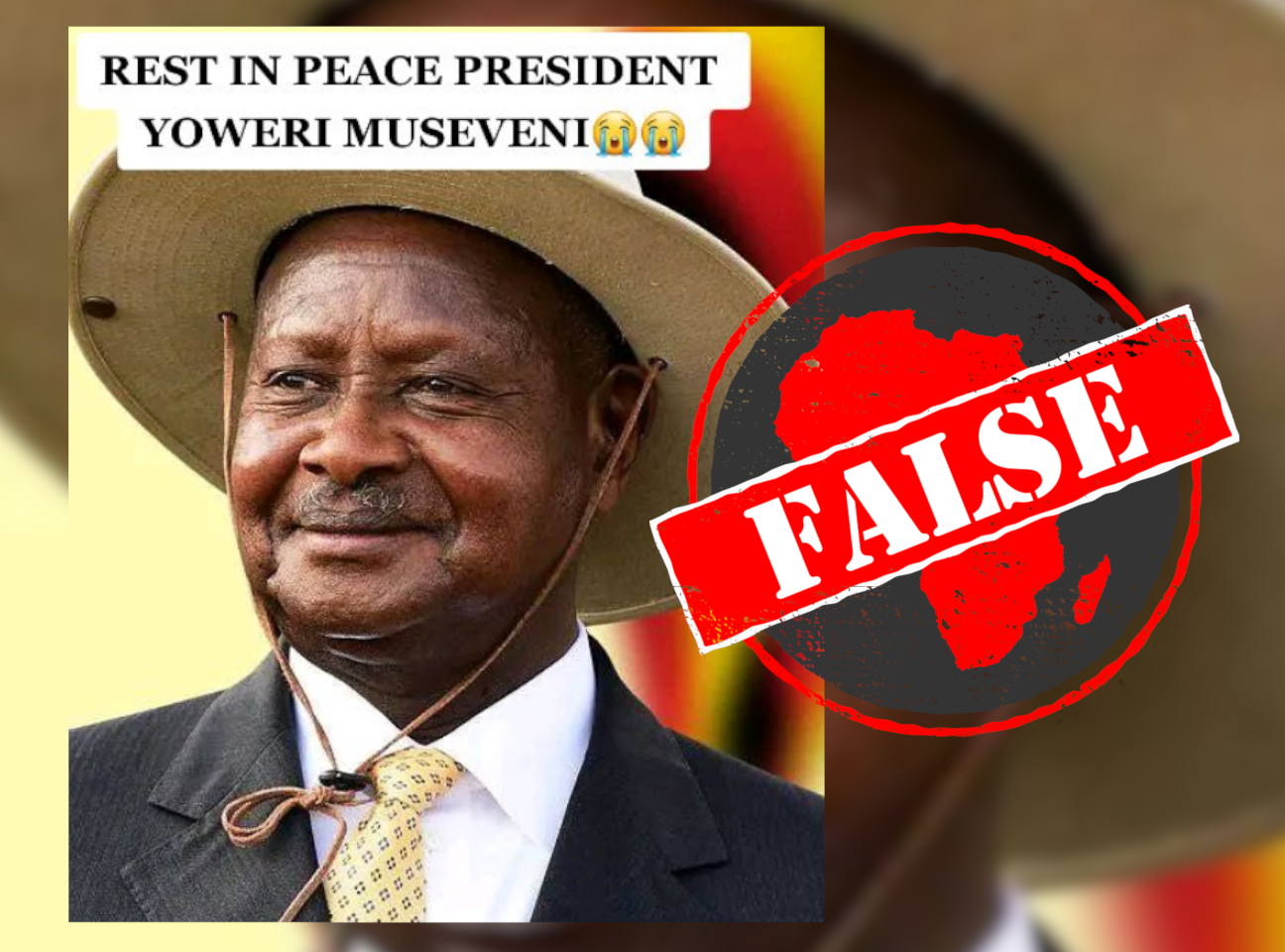IN SHORT: Following his bout with a mild case of Covid-19, many social media posts claimed that Ugandan president Yoweri Museveni had died. This is not true.
There have been several claims on social media that the Ugandan president Yoweri Museveni has died.
One such claim is made in a video on TikTok posted on 13 June 2023, which shows a slideshow of a loop of three images with the caption “Rest in Peace” and condolences to Ugandans, implying that the president has died.
Two of the images are portraits of Museveni, while the third shows his torso standing, wearing a white shirt. The images are accompanied by a sad song, sang in Kiswahili.
The video has over 155 shares, 2,700 likes and 351 comments.
Museveni has been president of Uganda since 1986 when he successfully overthrew the government of Milton Obote. He first stood for election in 1996.
Uganda holds elections every five years, and Museveni has been re-elected in every election since then.
There have been false claims of Museveni's death before, such as in 2021 when the president warned social media users that they would be arrested if they claimed he was dead.
On 7 June 2023, it was officially reported that Museveni had tested positive for Covid-19 after developing mild flu-like symptoms.
A day later, he posted on Twitter confirming the infection and said he had gone into self-isolation. But he was in good health, he said, and the infection was mild.
The measures previously taken by the Ugandan presidency to keep Museveni from contracting the virus were remarkable.
The president was vaccinated against Covid-19 and also received a booster shot. He urged Ugandans many times to get vaccinated and the elderly to get booster shots.
But after his Twitter update on 11 June, he did not post the following day, leading to some claims on social media that he was in intensive care.
But is the claim of Museveni’s death true?

Museveni is alive
Museveni is an active Twitter user, and since being infected, has regularly posted updates on the platform about his health. On 13 June, he said his mild symptoms were gone.
He also denied claims that he was in intensive care, saying if he was seriously ill, the Ugandan government would have informed the country as there was nothing to hide. On 14 June, Museveni's brother confirmed that the president was well and out of danger.
If a president of a country were to die, such information would come from credible official government channels and reputable news outlets with reliable sources.
False claims about the death of presidents can cause panic and instability. It is important to verify the accuracy of such claims before spreading them.
Claims that president Museveni is dead are false.
Republish our content for free
For publishers: what to do if your post is rated false
A fact-checker has rated your Facebook or Instagram post as “false”, “altered”, “partly false” or “missing context”. This could have serious consequences. What do you do?
Click on our guide for the steps you should follow.
Publishers guideAfrica Check teams up with Facebook
Africa Check is a partner in Meta's third-party fact-checking programme to help stop the spread of false information on social media.
The content we rate as “false” will be downgraded on Facebook and Instagram. This means fewer people will see it.
You can also help identify false information on Facebook. This guide explains how.





Add new comment